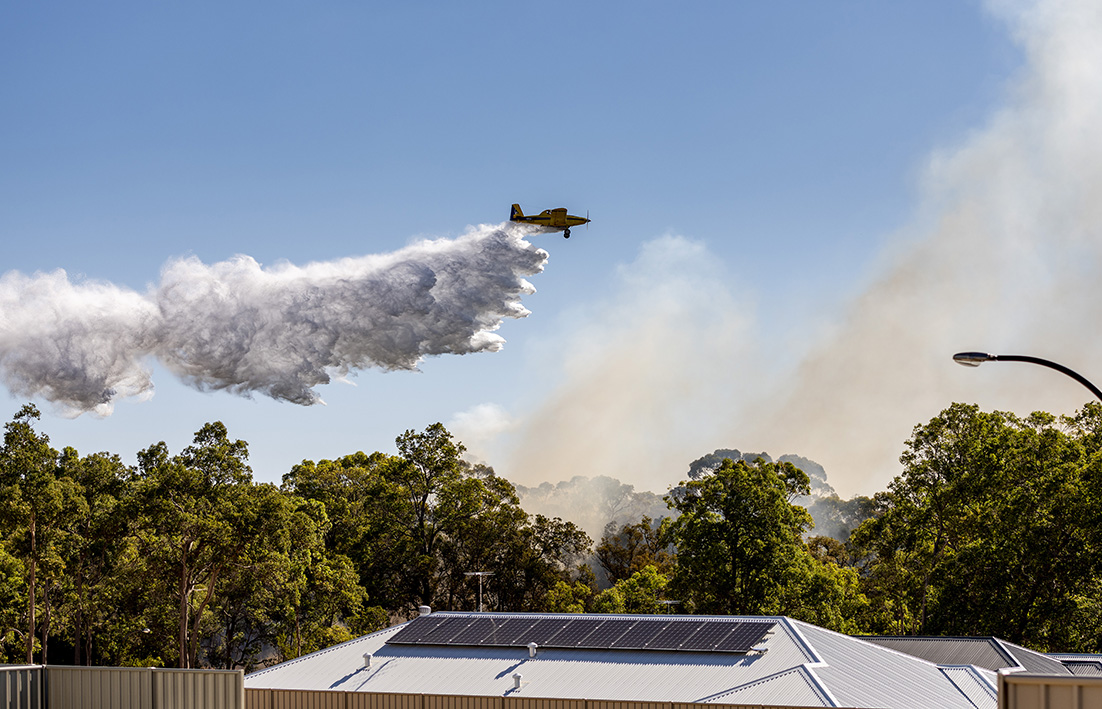
A SPECIALISED aerial firefighting fleet has been activated early to protect WA’s multibillion-dollar grain crops during the most fire-prone period of harvest.
Emergency Services Minister Stephen Dawson said two aerial strike teams would be strategically based in the main grain growing regions of WA – one in Geraldton and the other in Narrogin – on standby for a quick response to fast-moving crop fires.
Crop fires usually start by either machinery or lightning.
The aerial fleet is managed by the Department of Fire and Emergency Services (DFES) and each strike team comprises two fixed wing waterbombers, an air attack supervision aircraft and a fuel truck.
The aircraft can cruise at a speed of 280kmh, drop up to 3150 litres of water, foam or retardant and require just minutes to refuel and reload.
As fire danger ratings begin to escalate, the strike teams have already commenced in Geraldton and Narrogin to help safeguard crops in the regions.
Strike teams can be pre-deployed to other airbases as required in response to the latest intelligence reports.
Waterbombers will move south as the harvest stretches into December, protecting busy farming communities near Esperance.
Now entering its fourth year, the grain harvest aerial fleet program aims to quickly suppress crop fires before they destroy a farmer’s livelihood and threaten nearby properties.
During the 2023-24 harvest, strike teams completed 216 drops across 33 incidents, dropping 680,400 litres on firegrounds from Geraldton to Esperance.
The program is funded by DFES with support from the Department of Biodiversity, Conservation and Attractions and the Department of Primary Industries and Regional Development.
Mr Dawson said grain was one of the state’s most valuable export commodities and by all reports the grain growers were in for a bumper year.
“But the onset of grain harvest increases the risk of fires, so we’re getting ahead of the game by activating specialised aerial strike teams that can be deployed to high-priority incidents at short notice,’’ he said.
“It’s about taking the pressure off our farmers, who are usually first responders themselves, by providing extra resourcing when it is needed most.
“The waterbombers can reach an incident very quickly and reload and go again within minutes to help suppress a fire that is a threat to the community.”
Fire and Emergency Services Commissioner Darren Klemm said DFES would closely monitor fire conditions across the Mid West, Wheatbelt and Great Southern regions during the harvest period and could redirect the aircraft based on risk assessments.